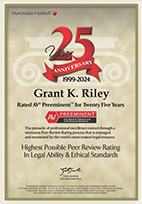
Can you get Legionnaires’ disease in a hotel? Yes. Contracting Legionnaires’ disease in hotels can be a serious health risk due to improperly maintained water systems. The first known outbreak of Legionnaires’ disease happened at a Pennsylvania Hotel during an annual convention of the American Legion in 1976. Over 2,000 former servicemen attended the event; 182 Legionnaires became ill and 29 died. Doctors could not figure out the disease until a CDC disease specialist discovered the bacteria and traced it to the hotel’s air conditioning system. Every year, hundreds of reported Legionnaires’ disease cases are associated with hotel stays.
WHAT IS LEGIONNAIRES’ DISEASE?
Legionnaires’ disease is a type of pneumonia infecting the lungs and respiratory system. The legionella bacteria cause it. Legionella occurs naturally in freshwater sources such as lakes and reservoirs. It thrives in warm water between 95 and 115 degrees Fahrenheit and can survive temperatures as low as 77 degrees. When property owners or managers don’t properly maintain and clean their building water systems, it can cause an overgrowth of legionella bacteria. People catch Legionnaires’ disease when they inhale water vapor contaminated with legionella bacteria. They can also catch a similar, but milder, illness called Pontiac fever.
WHAT ARE THE SYMPTOMS OF LEGIONNAIRES’ DISEASE?
Symptoms of Legionnaires’ disease are very similar to pneumonia (lung infection), and it shows up the same on a chest x-ray. The symptoms include:
- Cough,
- Confusion,
- Nausea,
- Headaches,
- Diarrhea,
- Muscle aches,
- Shortness of breath, and
- Fever.
If you are experiencing any symptoms akin to pneumonia, you should see a doctor immediately. Legionnaires’ disease must be treated with antibiotics, but left unchecked, it can be fatal. Approximately 1 in 10 people who contract Legionnaires’ disease die. It can also lead to kidney failure, organ damage, or cardiac issues.
The symptoms associated with Pontiac fever are milder and flu-like. Unlike Legionnaires’ disease, someone with Pontiac fever does not have pneumonia. The symptoms usually resolve within 3-5 days and don’t require antibiotics. How Do You Contract Legionnaires’ Disease in a Hotel?
Legionnaires’ is a water management issue. If there is an overgrowth of legionella bacteria in a building’s water systems, someone is not doing their job to maintain them. The larger a building, the more complex its water systems likely will be. The water systems must be properly maintained and kept clean in places like hotels that cater to customers or residents. When a property manager or owner is not vigilant, their negligence can lead to Legionnaires’ outbreaks.
You can contract Legionnaires’ from a hotel stay in several different ways.
Hot Tubs
Hot tubs usually operate at a temperature right in the sweet spot for legionella growth in a hotel jacuzzi. People also add contaminants to the water, such as skin cells and dirt, which encourage bacterial growth. Hot tubs require routine testing, cleaning, and chemical treatment. Legionella bacteria can grow and multiply in hot tubs not disinfected and cleaned properly. As the water heats up and turns to steam, people breathe it in. If the water is contaminated, they breathe in that bacteria and could contract Legionnaires’ disease.
Showers
Since hot showers produce steam, you can contract Legionnaires’ from a shower. If the water system is not cleaned, or if the water is left sitting in the shower pipe for a time, the water could become contaminated with bacteria. You can reduce your risk of contracting Legionnaires’ disease from a shower by running the water on the coldest setting for a few minutes and then at the hottest setting for a few minutes before using it for the first time.
Saunas or Steam Rooms
Some hotels with fitness centers or spas may also have a sauna or steam room. These rooms produce warm water vapor by nature. If the property owner does not maintain these systems properly, it could easily lead to an outbreak of Legionnaires’ disease.
Commercial Air Conditioning Units
Larger buildings such as hotels use cooling towers as part of their air conditioning systems, unlike residential air conditioning units. Cooling towers work by using large fans to mix air with heated water to lower its temperature, the water circulates and cools parts of the system. The towers then extract the heat and eject it as water vapor. They have large tanks of water exposed to the air, providing an ideal environment for legionella bacteria. The 1976 outbreak happened because of a hotel cooling tower for the air conditioning system.
WHAT SHOULD I DO IF I CONTRACT LEGIONNAIRES’ DISEASE?
If you have Legionnaires’ disease or pneumonia symptoms, you should immediately contact a doctor or go to the emergency room. Your health is your top priority, and Legionnaires’ disease can be deadly without treatment. If you later decide that you want to take legal action, you’ll need a confirmed diagnosis of Legionnaires’ disease and medical records to support your case.
If you have reason to believe you contracted Legionnaires’ disease during a hotel stay, you may be entitled to compensation from the responsible parties. You are going to need an attorney who’s familiar with handling Legionnaires’ disease personal injury cases. Your attorney will investigate the case to determine whom to include as defendants and how they caused your damages. They will help you build a strong case using evidence and documentation and attempt to negotiate a favorable settlement. If they cannot get the other side to agree to a fair number, your attorney will take the claim to trial.
CONTACT RILEY | ERSOFF LLP FOR YOUR LEGIONNAIRES’ DISEASE LAWSUIT
The Riley | Ersoff LLP team of attorneys focuses exclusively on lawsuits involving property owner negligence. We represent clients who have suffered because of these negligent property owners and managers, such as those who contracted Legionnaires’ disease, are living in slum housing, or deal with bed bug infestations. We help people get the compensation they deserve. Contact us today to discuss your Legionnaires’ disease claim.
The post Can You Get Legionnaires’ Disease in a Hotel? appeared first on Riley | Ersoff LLP.

















